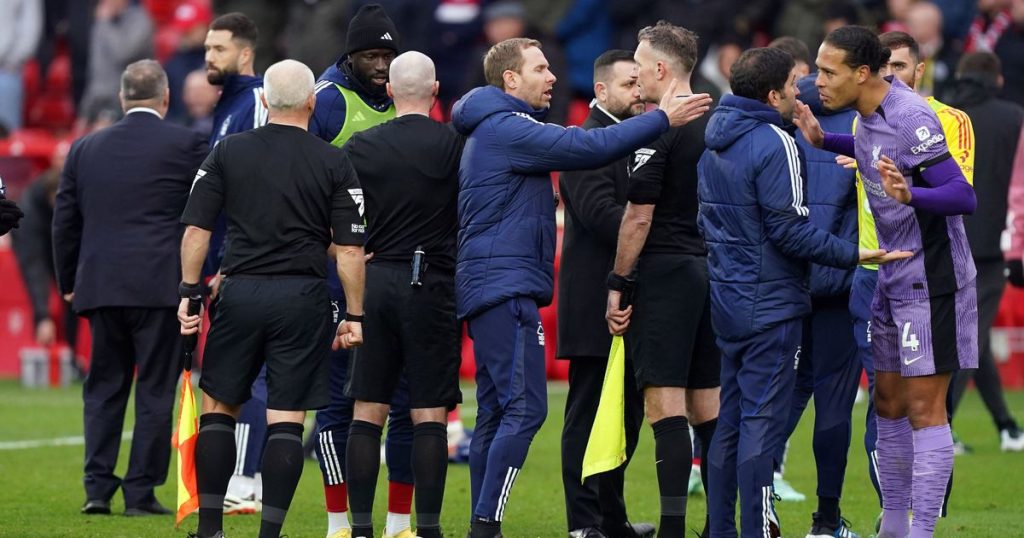Former Premier League referee Peter Walton has pointed out that the behavior of Premier League managers and coaches may be influencing the increased abuse towards officials by players during matches. This comes after Nottingham Forest received a fine and one of their coaches was banned for directing derogatory language towards a referee. Walton believes that when coaches display such behavior, it sets a negative example for the players on how to interact with referees, thereby normalizing abuse. He suggests that the actions of coaching staff in the league play a more significant role in perpetuating this issue than the introduction of VAR.
Walton also noted that the implementation of VAR has contributed to the escalation of abuse towards referees in recent years. The expectation that VAR would eliminate all refereeing errors has led to an increased sense of outrage from players and coaches when decisions don’t go their way. This, in turn, has fueled a more confrontational attitude towards officials on the pitch. Walton emphasizes the need for players and managers to recognize that decisions are subjective, and mistakes may still occur even with the use of technology like VAR. It is crucial for all involved in the sport to maintain respect for match officials, regardless of the outcome of a decision.
The former referee expressed concern over the endorsement of disrespectful behavior towards officials by managers and coaches in the Premier League. Walton highlighted the lack of accountability from managers who rarely criticize their players for being disrespectful towards referees. He contrasted this with historical figures like Brian Clough, who maintained a strict stance against arguing with match officials. Walton proposed the idea of introducing a blue card system for dissent, similar to the sin-bin concept, to deter players from engaging in abusive conduct towards referees.
Walton’s observations underscore the broader issue of dissent in football, which FIFA has identified as a significant concern for the integrity and image of the game. The prevalence of players and coaches openly arguing and shouting at referees during matches undermines the values of respect and fair play that are fundamental to football. By condoning such behavior, coaching staff and players perpetuate a culture of disrespect and hostility towards match officials, setting a negative example for fans and younger generations involved in the sport.
The escalation of abuse towards referees highlights the need for greater accountability and respect within football at all levels. Walton’s comments shed light on the complex dynamics between player-coach interactions, technology like VAR, and the overall culture of the sport. It is evident that addressing issues of dissent and abuse requires a collective effort from governing bodies, clubs, players, and coaching staff to uphold the principles of fairness, respect, and sportsmanship on and off the pitch. By fostering a culture of mutual respect and understanding, football can strive towards creating a more positive and inclusive environment for all participants.


